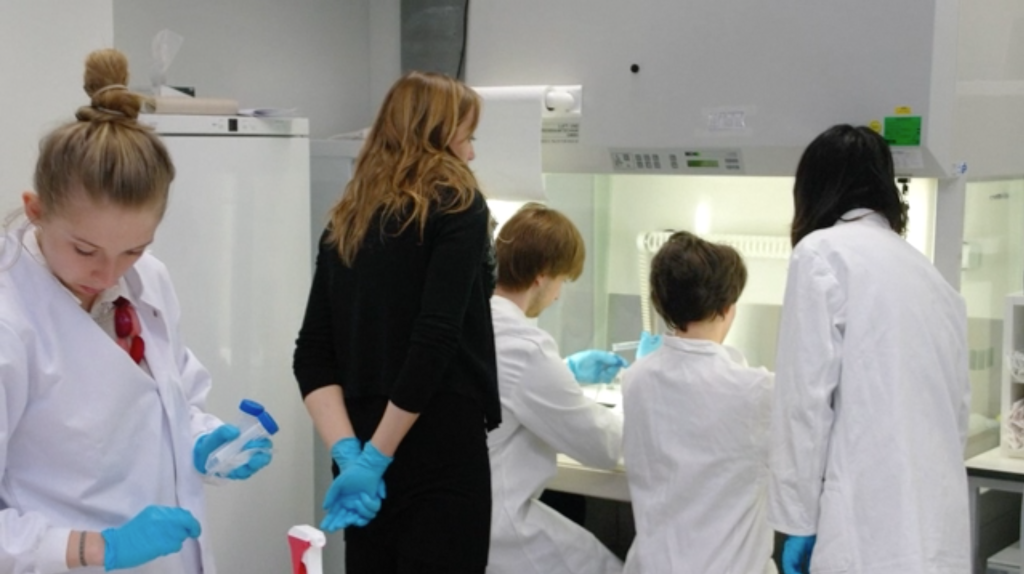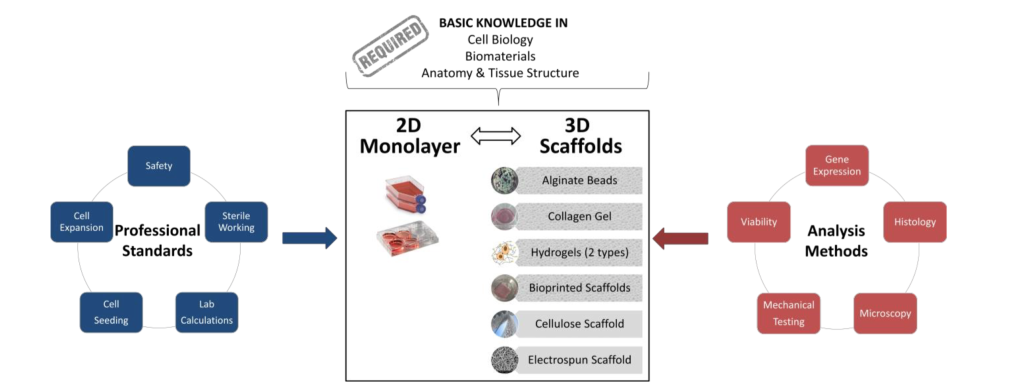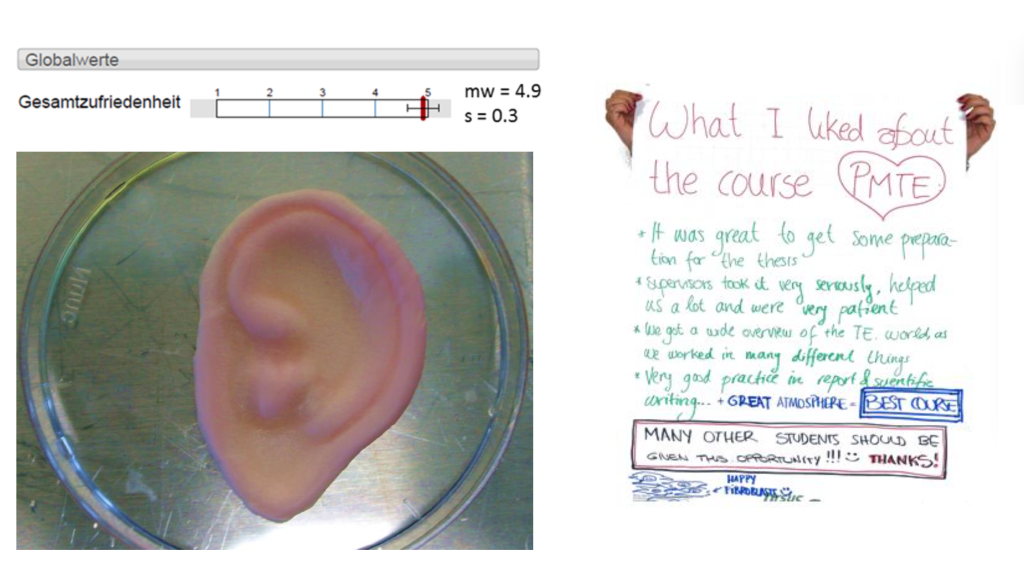Practical Methods in Tissue Engineering (376-1622-00L)
Tissue engineering is the use of a combination of cells, engineering and materials methods, and suitable biochemical and physicochemical factors to improve or replace biological tissues (i.e., bone, cartilage, blood vessels, bladder, skin, muscle, etc.).
At the Institute of Biomechancis at D-HEST, each semester 12 students immerse themselves hands-on into tissue engineering. They learn to use state of the art methods for scaffold production and cell analysis. Dr. Karin Wuertz-Kozak, supported by Prof. Dr. Marcy Zenobi-Wong, teach the laboratory course for 4h per week. Students can earn 5 ECTS, but the didactics allow them to learn much more.
The lecturer’s design of the course’s learning outcomes accentuated four goals:
- Students are enabled to recognize and compare various 2D and 3D culture systems and choose the most appropriate system for future tissue engineering experiments
- In the tissue engineering lab, students apply professional standards to work safely and in sterile conditions in a tissue engineering lab
- Students can apply methods of gene and protein expression analysis, viability detection and mechanical testing to determine the cellular responses and properties of tissue engineered constructs.
- Finally, students learn and practice how to acquire, critically assess, and evaluate results.
To realize these aims, the lecturers guide the students through experiments in the lab, encourage them to use protocols to independently solve the complex analytical challenges, and even take students on field trips to contextualize their knowledge about tissue engineering with ETH’s academic and industry partners.
Key aspects of the course
- Students perform experiments with state of the art techniques (such as electrospinning, 3D bioprinting and qPCR) that inspire creativity
- Students work on interdisciplinary projects and practice cooperative learning with fellow students that have a different educational background
- Students apply critical thinking by evaluating and discussing their results in the learning controls, by comparing their results to findings in the scientific literature, by explaining differences and by identifying errors/limitations
- Students receive preparation for future (= their master thesis) in all learning controls, but specifically by having to write a project proposal that includes: state of the art, research aims, experimental plan, timetable, budget and relevance (learning control of the lab on electrospinning)
- Students gain extensive hands-on experience that with applicability to current research (small group size, experiments related to ongoing research)
- Students are given the possibility to visit selected laboratories and gain better insights into ongoing research activities
- Students obtain innovative, practical and sustainable safety training by visiting the ETH Safety Parcours and by watching custom-made true/false videos on sterile working environments
- Use of multimedia teaching (all documents are provided electronically on Moodle, including custom-made videos, advance organizer, online entry tests)
- The course has received excellent student evaluations and has thus far been overbooked each semester offered
Advance Organizer of the course:
If you want access to the moodle course, please contact Dr. Karin Wuertz-Kozak.
Evaluation
In the course evaluations, students were extremely positive as can be seen in the picture below. (Overall satisfaction: 4.9 out of 5)
Outstanding work!
(Text by Dr. Erik Jentges, Dr. Karin Wuertz-Kozak and Sarah Frederickx.)



